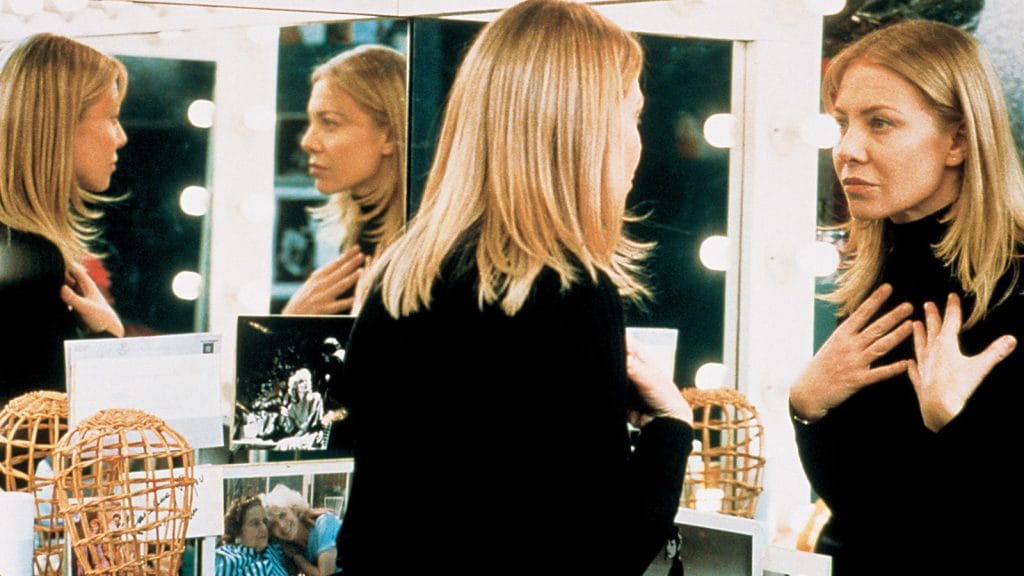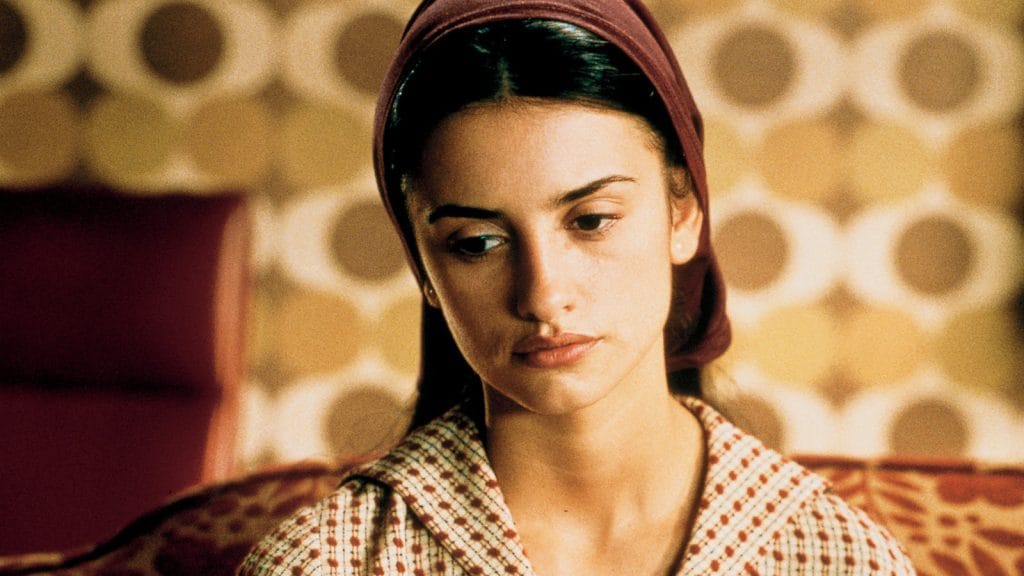Womanhood as we know it is rather haunted by the existence of motherhood. A crucial state of being, one defined by the constriction of the gender roles and the anticipation of having to become a “mother” due to biological constraints, is the crux of the social conditioning that the female gender base gets subjected to from an early age. This leads to an interrogation of whether there exists a state of motherhood that isn’t merely restricted to biological constraints – one that can be a matter of choice, transcending biological boundaries.
Pedro Almodóvar, in his 1999 film All About My Mother, navigates these uncertain limitations and impositions that entail motherhood through his exploration of positioning the role of the ‘Mother,’ figure beyond the birth-giver(s) and its repercussions. The role of the Mother initially, is introduced through the character of Manuela, a professional nurse who loses her only family, her son Esteban. Esteban is seen wishing to know more about his father in the earlier scenes, clearly implying that Manuela avoided discussing the topic.
However, soon after his death, stuck in the role of the grief-stricken mother, her wish to fulfil her son’s wish drags her down to Barcelona, the very place he was conceived, to find his father. This leads onto a web of interconnected realisations and familial intimacies amongst people she both reconnects with and forms new relationships with. Manuela, in her position as a grieving, single mother, attempts to reclaim her life, leading to a non-normative image of a mother in trying to let her grief go.
Since patriarchal motherhood entails an all-encompassing self-sacrifice, Manuela’s refusal to let the grief take control over her life (even though she simultaneously exists with it) makes her prone to patriarchal criticism. Almodóvar initiates the streak of non-normativity and dissent through this and leads onto the next thread, one dealing with the dichotomy of loss and gain that comprises her motherhood.
Chosen family: Gain amidst loss in All About My Mother
Esteban’s death is undoubtedly a huge loss to Manuela; it doesn’t entirely become the crux of her existence and, ironically, even if it’s painstakingly so, brings forth an unanticipated gain in her life – a chosen family, one to fill the void, if not to replace it. Mainstream discourse on maternal grief often frowns upon the mother’s ability to co-exist and heal eventually from her child’s death – here, Manuela acts as the model for that very dissent.

In Manuela’s gain of the found family, she reconnects with her old friend Agrado, a transgender sex worker who’s seen facing perpetual abuse at the hands of her clients. In her care for Agrado and in empowering her to escape the cycle of abuse, Manuela’s actions highlight a different kind of mothering, one drenched in the spirits of unabashed sisterhood. The sentiment that the act of mothering doesn’t need to be inherently biological and can be synonymous with the act of empowering gets exemplified further through Almodóvar’s establishment of the maternal relationship in not just caring but also in taking up the ethical question of chosen motherhood over a non-biological child.
Beyond biological boundaries
The establishment of motherhood not necessarily needing to be inherently biological happens early on in the film, but it is the sentiment that perpetually binds the spirit of the story. Kinship facilitates mothering and also brings forth the notion of the ethical choice concerning motherhood, a choice that isn’t given much relevance in current times, thus making Almodóvar’s message even more crucial.

Manuela introduces a nun called Sister Rosa through Agrado and soon develops a kinship with her. The three of them forming an intimate bond. Sister Rosa falls into a compromised position when she learns about her pregnancy – here a pregnant nun is representative of another non-normative mother figure, one whose expected piousness is supposed to suppress her sexuality.
However, neither Manuela nor Agrado let the knowledge of her pregnancy stain her reputation, and in fact when Rosa discloses it to them, they act as pillars of ultimate support, championing the idea of sisterhood amongst them. What brings Manuela closer to Rosa is their solidarity in having their biological children sharing the same father. The same person Manuela got impregnated by when she had Esteban is revealed to be the father of Rosa’s child, tying in an interconnected web of shared experiences, something that factors into the communality that motherhood often requires.
However, factoring in the thematic prevalence of non-normative motherhood, the identity of the father escapes the ambivalence when it is revealed that it is, in fact, not a man but a transgender woman named Lola who was once Manuela’s lover pre-transitioning and was Rosa’s post. The gender identity of the paternal figure challenges the binary, because Lola, in her abandonment of both Manuela previously and Rosa, caters to the absent father stereotype, challenging her own gender-role and thus gets situated as a somewhat ambiguous “paternal mother.”
Manuela’s show of solidarity to Rosa’s plight even on her HIV diagnosis shows the figure of a woman whose motherhood isn’t threatened by the trivial sentiment of sexual jealousy in having to share the father of her child with another woman. Her ethical choice of taking up Rosa’s child post her death and adopting it as her own, even going as far as to name him after her deceased son Esteban, epitomises the ideal of motherhood being much larger than mere biological boundaries.
Agrado’s love and sheltering for Rosa’s child too typifies the non-biological motherhood and further substantiates the non-normativity so emphasised upon, as she emerges as the transgender sex worker, whose mothering is no less crucial than Rosa or Manuela’s. Almodóvar posits non-normative mother figures of an HIV-positive nun or a transgender sex worker in a way where their mothering or the ethical choice they facilitate isn’t treated as a stigma.
Maternal frustration and labour
Affective labour comes hand-in-hand with the state of having to act out one’s maternal responsibilities. Motherhood entails a perpetual labour, one that might not be eternally of love and can be of equal times pain. Manuela’s adoption of Rosa’s son acts as a smooth transition from her role of a caregiving labourer in the professional sphere to the role of an affective labourer in the domestic sphere, where she selflessly takes in another’s child to raise as her own, accentuating the essence of mothering to its highest.
However, in Manuela’s acceptance through her labour of love comes a thematic intrusion of the concept of maternal frustration. Manuela’s relentless mothering of Rosa’s child presupposes Rosa’s death; that acts as an ultimate form of maternal frustration for Rosa in dying during the process of becoming a mother, her labour one of pain, literally exhausting her.
Maternal frustration perks its head throughout the cast of characters, where one’s lies in the loss of her child, and another’s lies in her inability to ever reproduce a biological one in terms of “bearing” the foetus, as is Agrado’s case. All the main characters in the film All About My Mother are biologically female and otherwise undoubtedly function as mothers in the film; however, what unites them perhaps is the pain from their maternal frustration rather than their motherhood itself. Their maternality acts as a form of bond since it primarily roots from a place of loss in all their cases, building a solidarity amidst all the turmoil.
Reimagining motherhood in All About My Mother
In this brilliant venture, Almodóvar establishes a sensitisation to all non-normative forms of maternality, mothering, or motherhood as a whole. He reimagines the existing patriarchal state of motherhood by promoting fluidity and rejecting essentialism. All About My Mother transcends the traditional limitations of confining motherhood to a mere gendered or oppressive practice. The impossibility of accepting self-sacrifice is the crux of the realm of motherhood- one that pervades the very state of it. A non-adherence to this often results in the loss of autonomy, tying it intricately to the entire essence of womanhood.

Almodóvar reclaims this very notion in making it his own, where the dissenting forms aren’t stigmatised but rather uplifted in an attempt to normalise them. All About My Mother ends up being not just an homage but rather a love letter to womanhood, where Almodóvar concludes the film dedicating it to every woman out there, in whatever shape or form, capable of being a mother or not promoting the ethos of fluid identities at its peak – “To all actresses who have played actresses, to all women who act, to all men who act and become women, to all the people who want to be mothers. To my mother.”
All About My Mother reimagines motherhood amidst all its follies, making the state of motherhood seem like an accessible instrument rather than an oppressive one by fighting through the patriarchal forces. It opens up a forum to elevate further discussions where unconventional approaches aren’t shunned, making it a liberating celebration of motherhood in the end, keeping it relevant to this day due to its inculcation of inclusivity.




A splendid read!